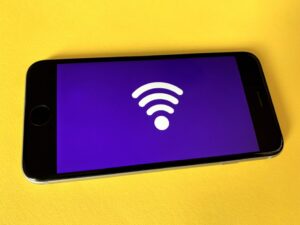 At the end of 2019 when the Council of Stellenbosch University approved the budget for 2020, it included the introduction to a a new internet model. This decision led to a phasing out process of Inetkey – the tool used to track and account for the internet usage of staff and students. Although Inetkey still had to be used to gain access to the Internet, students were no longer charged for internet usage. Charging of staff usage was temporarily suspended for 2020.
At the end of 2019 when the Council of Stellenbosch University approved the budget for 2020, it included the introduction to a a new internet model. This decision led to a phasing out process of Inetkey – the tool used to track and account for the internet usage of staff and students. Although Inetkey still had to be used to gain access to the Internet, students were no longer charged for internet usage. Charging of staff usage was temporarily suspended for 2020.
However, the idea of “free” internet was only applicable to internet for students to ensure access to complete their studies effectively. Payment for Internet for staff still has to paid for by departments. The Finance Committee decided to levy an annual, once-off fee and for 2021 a once-off fee of R674.00 (R57.83 per month) was agreed on.
From this year the annual internet fee will be included in the network registration fee which includes the renewal of usernames. All staff usernames expire at the end of March and staff annually have to reactivated online.
Currently the cost registration of a username on the network is as follows:
Internet fee: R674.00
Network/username fee: R287.00
Total: R961.00
Please take note that the internet fee is only levied on the “primary username”. If you have more than one username linked to your SU number, the internet fee will only be levied once. (For example generic departmental usernames).
For enquiries regarding the reactivation of usernames, please log a request on the ICT Partner Portal or refer to our service catalogue for more information
Enquiries regarding the internet fee can be directed to the Finance Department.


